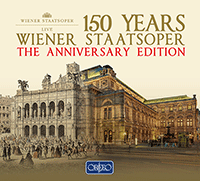Montserrat Caballé
Montserrat Caballé studied singing at the Barcelona Conservatory with the singers Eugenia Kemény and Conchita Badía and the conductor Napoleone Annovazzi. She first appeared at Barcelona’s Gran Teatro del Liceu in 1953 in a gala concert, and won the conservatory’s gold medal. Between 1956 and 1959 she was a member of the Basle Opera in Switzerland, where she sang a wide range of rôles, including Mimì/La Bohème, Marta/Tiefland (d’Albert) and the title part in Richard Strauss’s Salome. She joined the Bremen Opera in 1959, staying there until 1962 and once again tackling a varied repertoire, including the title rôles in Dvořák’s Armida and Rusalka, as well as Violetta/La traviata and Tatyana/Eugene Onegin. She returned to the Liceu in 1962 to sing the title rôle in Arabella and during the winter of 1962–1963 toured Mexico, during which she appeared in the title rôle of Massenet’s Manon at the Palacio de Bellas Artes in Mexico City. In 1964 Caballé married the tenor Bernabé Martí with whom she occasionally appeared, as she did in later years with their daughter Montserrat Martí, also a soprano.
The year of Caballé’s international breakthrough was 1965. She replaced Marilyn Horne, at only a month’s notice and having never sung any bel canto opera previously, in a concert performance of Donizetti’s Lucrezia Borgia at Carnegie Hall, New York. The occasion was a triumph, Caballé enjoying a twenty-five minute standing ovation. She was contracted by RCA to record this rôle, which she did with success, quickly becoming an established recording artist. During the summer of 1965 she appeared at the Glyndebourne Festival as the Marschallin/Der Rosenkavalier and the Countess/Le nozze di Figaro. At the end of the same year Caballé returned to Carnegie Hall to sing the part of Queen Elizabeth I in a concert performance of Donizetti’s Roberto Devereux, and made the first of many appearances at the Metropolitan Opera as Marguerite/Faust. She was very active at the Met between 1966 and 1969, singing Violetta, Leonora/Il trovatore, Desdemona/Otello, Liù/Turandot and the title rôle in Luisa Miller. She made a sensational début at the Verona Arena in 1969, singing Elisabetta/Don Carlo (while on crutches) and sustaining her final high B for twenty bars until the final orchestral chord of the aria.
The following year, 1970, Caballé made her ‘official’ début at La Scala, Milan, in Lucrezia Borgia (having appeared there in 1960 as a Flower Maiden in Parsifal); and sang at Covent Garden for the first time in 1972 as Violetta. She would return to New York, Milan and London on many occasions. Later rôles at the Met included Amelia/Un ballo in maschera, Norma, Elena/I vespri siciliani, Mimì and the title rôles in Aida and Ariadne auf Naxos; at La Scala, Amelia and the title rôles in Adriana Lecouvreur, Maria Stuarda and Norma; and at Covent Garden Norma, Leonora/Il trovatore, Amelia and Aida. She made her début at the San Francisco Opera in 1977 as Turandot, returning for a further ten seasons to sing parts such as Elvira/Ernani and the title rôles of La Gioconda, Semiramide and Tosca, reflecting her move during the late 1970s into the heavier soprano repertoire. She continued to sing at the Met throughout the 1980s and made her final, ninety-ninth, appearance there as Mimì opposite Luciano Pavarotti in 1988.
Later operatic appearances included Catherine of Aragon/Henri VIII (Saint-Saëns) and the title rôle in Massenet’s Cléopâtre, both at the Liceu in 2002 and 2004 respectively, and as the Duchess of Krakenthorpe/La fille du régiment at the Vienna State Opera in 2007. Caballé’s final regular operatic appearances were in 1992. They included Madama Cortese/Il viaggio a Reims at Covent Garden. In the same year she moved into the world of popular music, duetting with Freddie Mercury of the group Queen in the hit single and album, Barcelona, the ‘theme song’ of the 1992 Olympic Games which were hosted by that city. She subsequently remained extremely active, undertaking a large range of charitable work, often in the form of charity concerts.
Caballé was famous for the speed at which she could learn parts, a virtue which is reflected in her huge repertoire and which made her an ideal singer for recording. Consequently her discography is very large indeed. It includes rarities, such as one of the few soprano accounts of Adalgisa, opposite Joan Sutherland’s Norma; and also what she herself felt to be her finest performance: the title rôle of Norma, opposite Jon Vickers, at Orange in the summer of 1974. Her extraordinary ability to sing with the most beautiful vocal control and tone, as well as with considerable vigour, is notable throughout, as well as her outstanding musicanship. Onstage Caballé proved to be a convincing, if often rather static, actress; while offstage her professionalism, instinctive sense of humour and lack of pretension made her a popular colleague.
© Naxos Rights International Ltd. — David Patmore (A–Z of Singers, Naxos 8.558097-100).

















